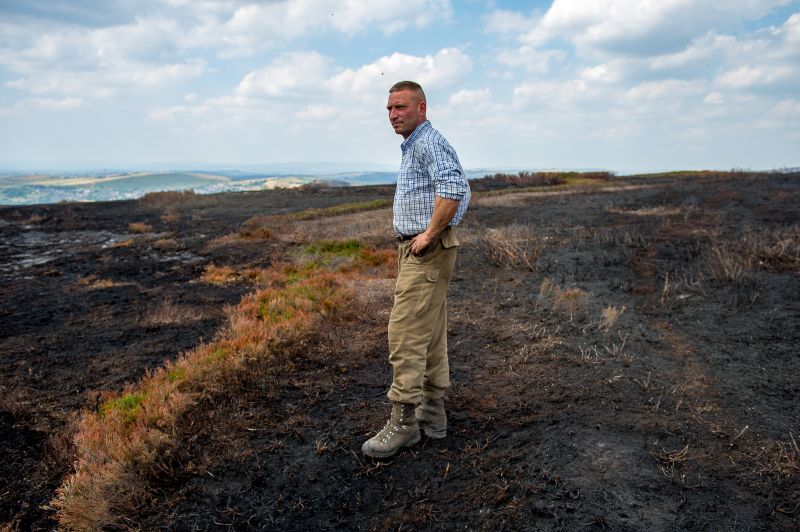
Gamekeepers and farmers on moors ravaged by wildfires are left facing bills running into tens of thousands of pounds – after around 5,000 acres of their land was turned into ‘black desert’.
Saddleworth Moor, which was once home to a vast array of wild and farm animals, is now a charred and bare landscape devoid of any life.
For the people who make a living from the moor the fires which raged from June 24 to July 18 were a catastrophe.
Those who used the land to graze their animals and take out shooting parties looked on in horror as a wildfire took hold and spread over most of their land, after their desperate attempts to fight back the flames failed.
Gamekeeper Richard Birch, 48, who manages Brushes Farm and its surrounding lands on Saddleworth Moor, Greater Manchester, was one of the first on scene to fight the fire and stayed on the front lines with firefighters.
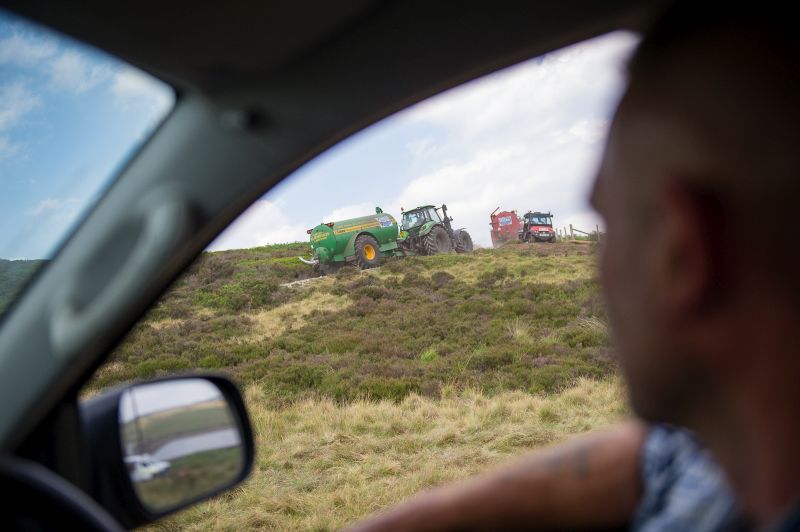
James Crowther, 30, has lost thousands of pounds and had to find new grazing land for his 450 ewes after rescuing them from the oncoming wall of fire.
Both are trying to find a way to carry on now that most of his business has been wiped out.
They say they want to be allowed to burn more brush to create more effective fire breaks but claim they are unable to due to Natural England rules.
A Natural England spokesman said the non-departmental public body works closely with land managers and farmers to on the maintenance of the moors and that burning more heather would have a ‘significant negative’ impact on the area.
Richard said: “The fire was completely devastating. You look out over the moor now and it’s just a black desert, it’s killed just about everything.
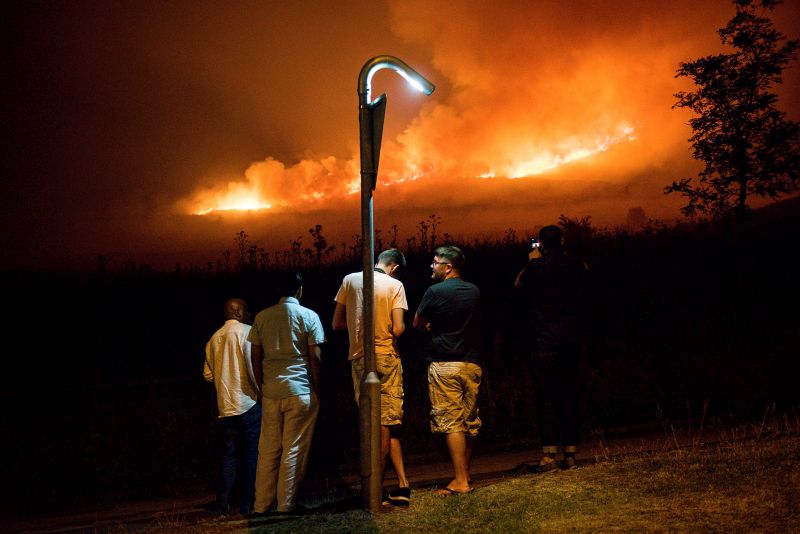
“It will be at least four or five years before this moor comes back to life. It’s all about what is gone.
“We were fighting flames about 10ft high but after two days there was nothing more we could do.
“With the dry weather and all the dry heather on the ground it was spreading too fast.
“While we were tackling the blaze some of the animals that were scared of us ran back into the flames which was horrible to see.
“We had just spent thousands seeding the part of the moor where the fire started from a helicopter and obviously all of that has gone to waste.
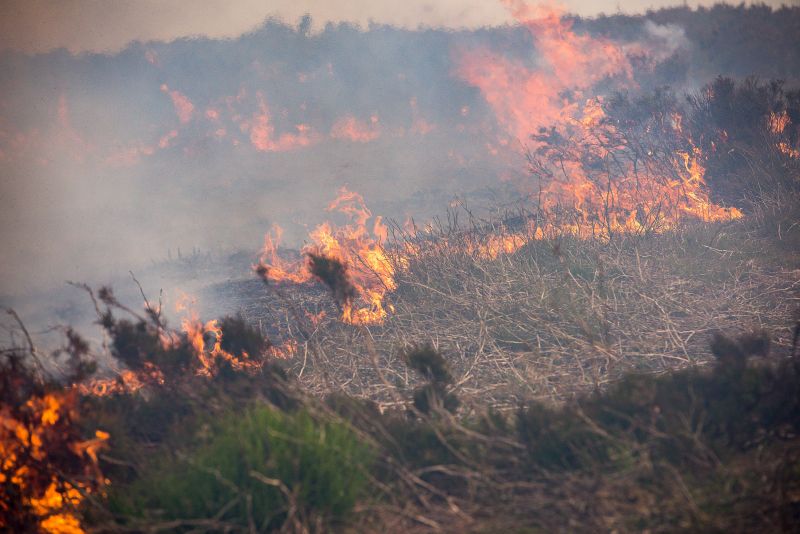
“How much more the damages are is very difficult to say, but the losses will be significant. In total it could run into the tens of thousands.”
James said: “It’s a complete nightmare. We rented a lot of that ground up on Stalybridge, about 1500 acres in total. We had 450 ewes up there.
“We had to move them. We were fighting the fire for two days and we knew we had to get the sheep off.
“I’ve had to rent new land and move those we managed to save, but we are still missing some. I’m not sure how many ran off into other fields or how many didn’t survive.
“The damages will run into the thousands for us over the next five years.”
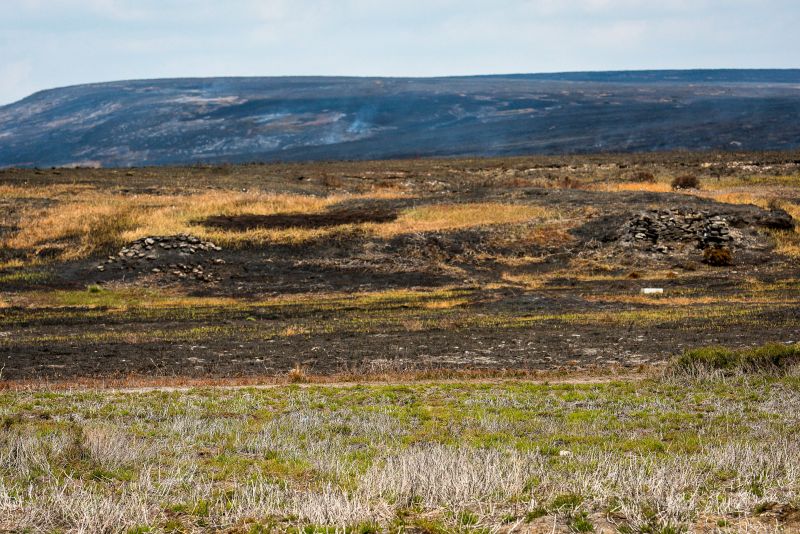
Richard claims he saw the start of the fire on Sunday 24 June and spotted four people on trail bikes fleeing the scene.
After receiving calls from concerned members of the public about smoke on the moorland, he headed out in his Land Rover to see what was happening.
When the bikers left he put out the fire but it was still smoking.
Richard said: “When I got calls from members of the public asking if there was a fire on the moor I couldn’t see anything so I went out to higher ground to see what was going on.
“It wasn’t a big fire but there were four trail bikes with it.
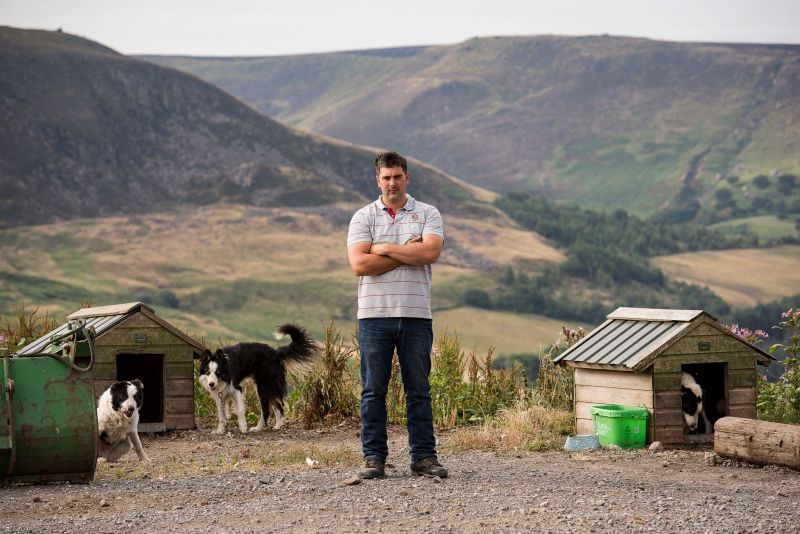
“They shouting something but took off very quickly when I got there.
“It’s so frustrating that people don’t take pride in the moor and instead choose to do things like this.
“It’s the oldest moor in the country and being English we should take pride in these things, but instead we get people treating them like this.”
The pair are now demanding changes from Natural England, claiming the public body’s ‘green’ policies stopped them from preventing the fire spreading.
They claim the organisation’s policies stopped them putting in more effective fire breaks on the moorland by limiting heather burning to 65 acres every year. The keepers would like to able to burn around 100 acres, or more if necessary in dryer weather.
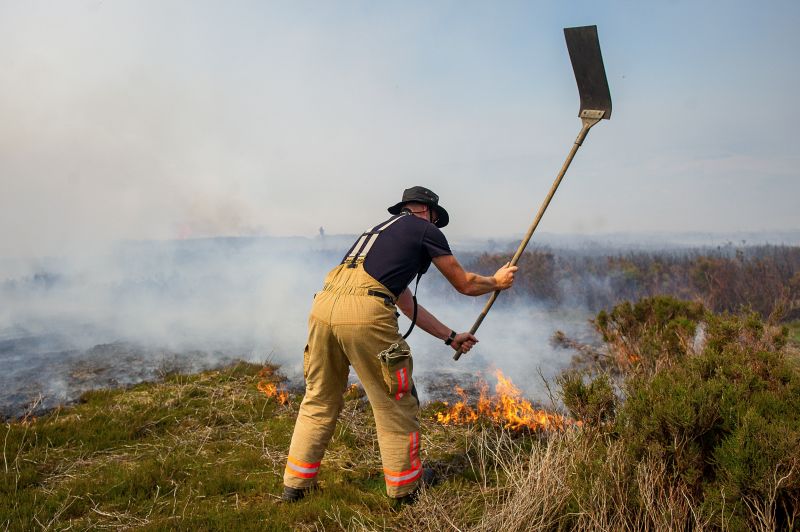
Richard said: “We burn heather anyway to create fire breaks and stop things like this from happening. We are allowed to burn 65 acres a year, which is a limit set by Natural England.
“It’s not enough. We need to put bigger fire breaks in the moorland and they need to take the reins off us and we have told them this.
“They control what we can do and they do not believe in heather burning because of the pollution.
“But the pollution levels are huge now because there was so much heather, it makes no sense.
“They need to look at the limits and when we get the go ahead we need to go and not stop.
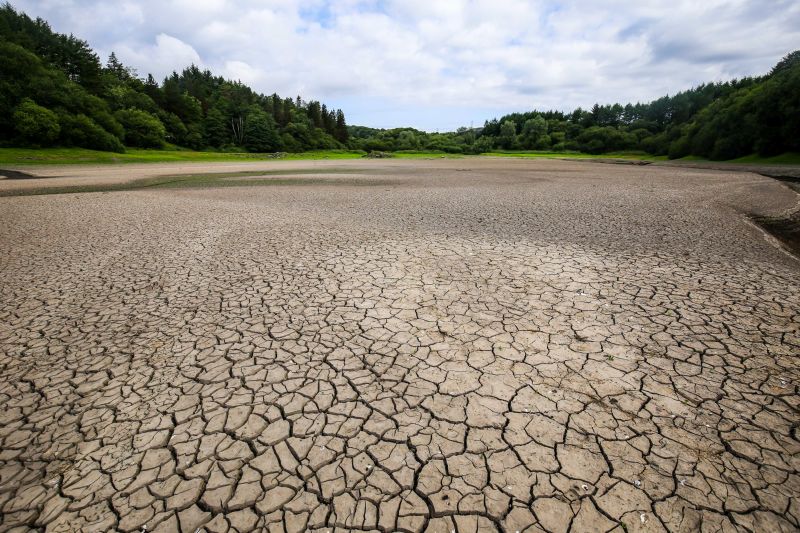
“All the heather that grows in the next two years wants stopping because all of it will grow to the same size. There will be a blanket of heather and no fire break.
“It needs managing even more now. Natural England need to sit back and think about how it’s the first moor before civilisation and it needs looking after.”
James said: “In the area where it started there were no fire breaks and there should have been.
“It’s Natural England that sets limits on how much heather can be burned for the breaks.
“There was a big fire 14 years ago and every year since we have been increasing stocks and wildlife, but that limit has stayed in place.”
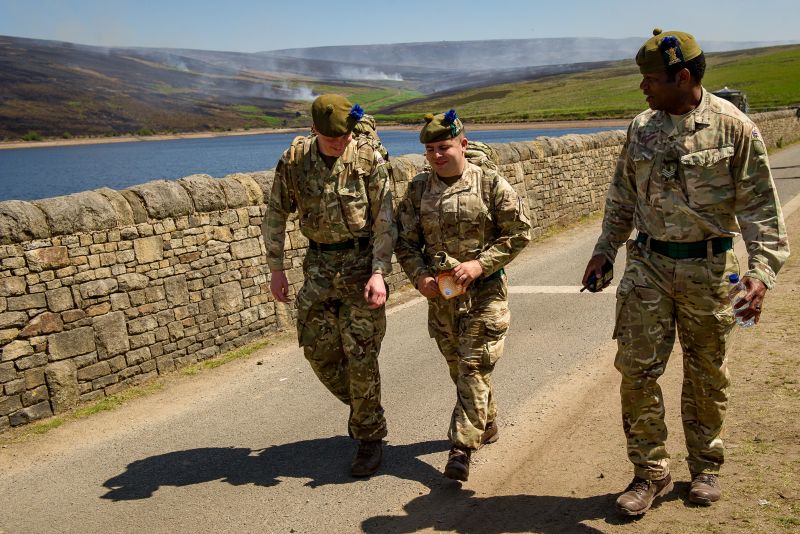
Richard also claims the lack of tracks on the moorland stopped him and the firefighters from tackling the blaze more effectively.
According to Richard the tracks also serve as good fire breaks and he and other gamekeepers were asked to ferry firefighters to and from the fire in their 4x4s, as only their vehicles could tackle the terrain.
He also said the damage caused by not being able to fight the fire will keep local wildlife away for years and could lead to the death of more animals, such as fish, as the ash is washed into the local ecosystem.
Richard said: “We are pressing now for bigger fire breaks and tracks to stop the burning going over those tracks. The fire goes out on the tracks.
“There are a couple of tracks across the moorland but we need more, as they will also help the fire engines get up.
“One problem we found was that the fire fighters could not get the tackle up there because of the lack of access, except for in our 4x4s.
“Everyone could see the amount of pollution the fire caused from the black smoke.
“But it’s not just the smoke, it’s the stuff that comes off the moor in the rain which will cause a lot of water pollution.
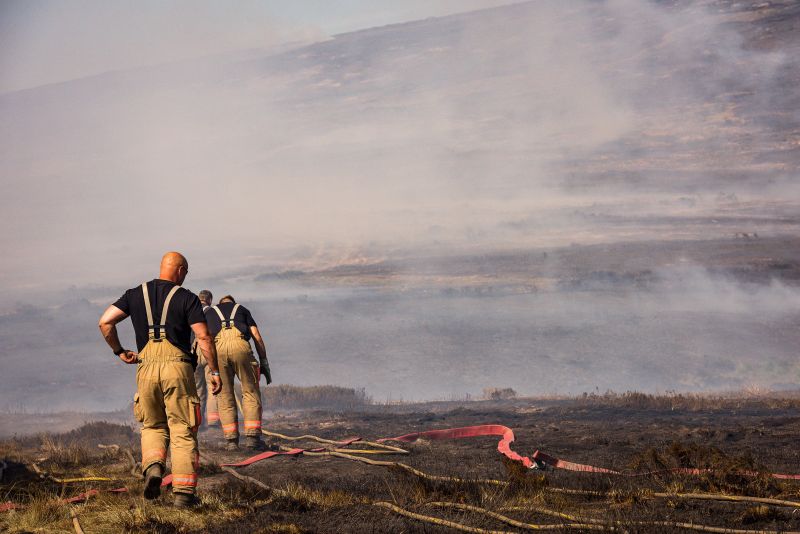
“When it gets into the reservoirs and streams of water it will kill fish.
“It will have a massive impact because we have not been able to burn smaller amounts before. This is going to go on for months.”
A Natural England spokesperson said: “Land Managers and farmers working in upland areas make an immense contribution to the maintenance of some of our most iconic landscapes, conserving wildlife and geology.
“Efforts to restore peatland habitats will ultimately make these areas more resilient to wildfire.
“We are working with landowners on long-term management plans that will protect wildlife and habitats, while also reducing fire risk.
“Burning more would have a significant negative impact on the wider environment.”
Greater Manchester Fire and Rescue Service said it ‘wasn’t possible’ to comment on Richard’s claims.
Greater Manchester Police were contacted for comment.
